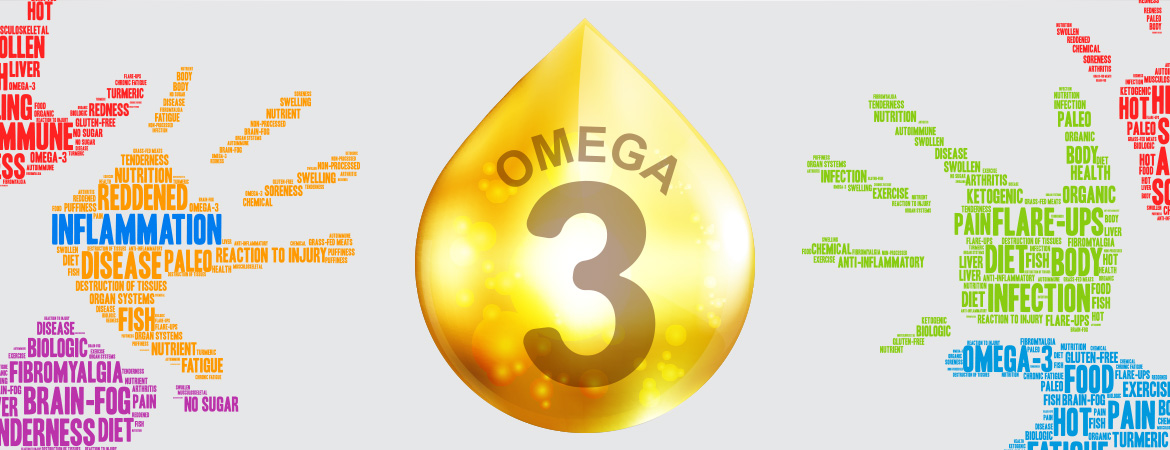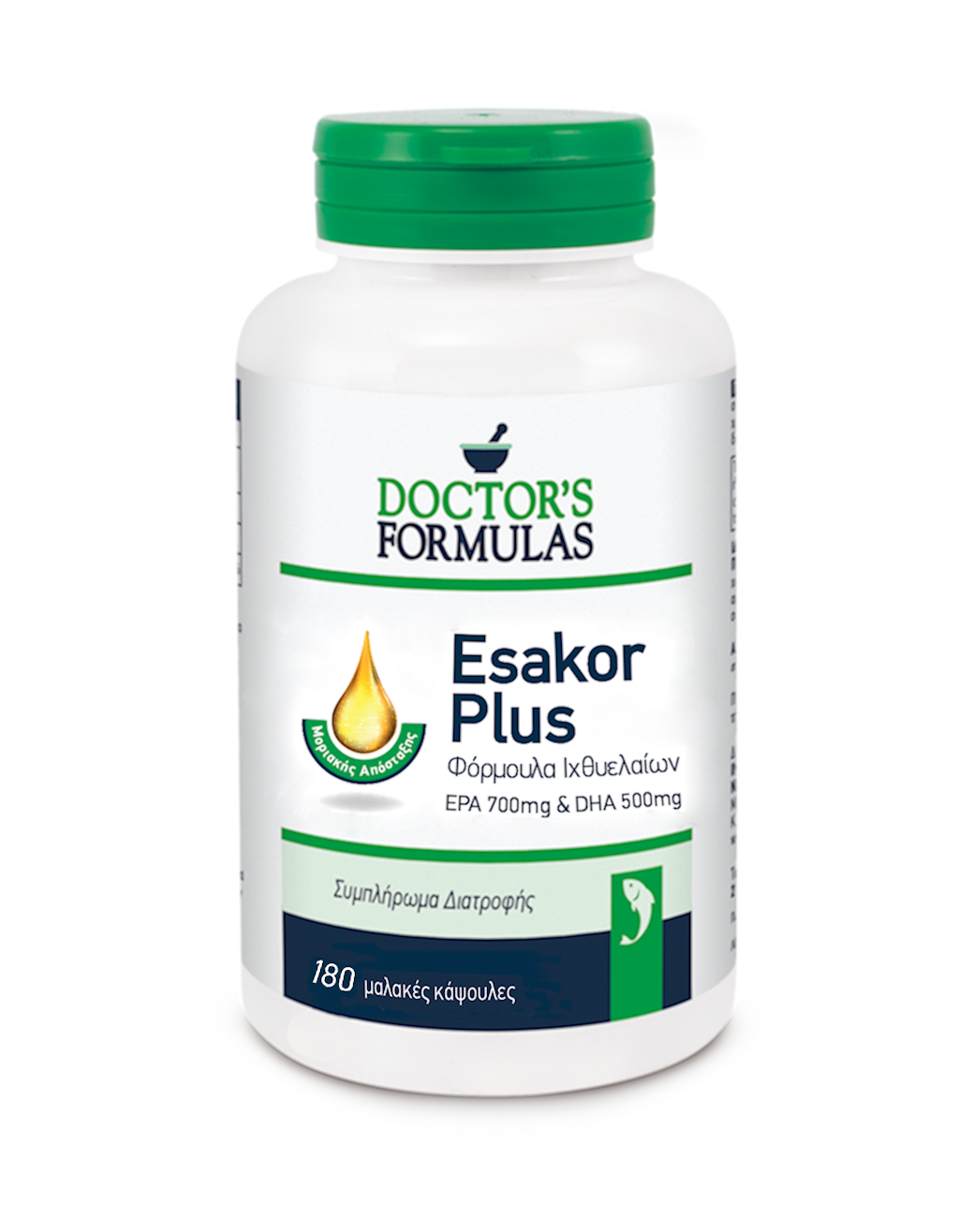Understanding how omega-3 dampens inflammatory reactions
Understanding how omega-3 dampens inflammatory reactions
Omega-3 fatty acids, which we primarily get through eating fatty fish, have long been thought to be good for our health. Many dietary studies have suggested that high intake is associated with a reduced risk of various disorders. Clinical trials have also shown beneficial anti-inflammatory effects in patients taking omega-3 supplements.
Recent research from NTNU supports previous discoveries, and has also found new, useful effects of omega-3 supplements and how these lipids dampen harmful inflammatory reactions in the body.
Effects little known
Despite numerous published dietary and clinical studies, we still don't fully understand how omega-3 fatty acids affect our cells and if this varies from person to person, between healthy and ill individuals, or whether the mechanism of action varies in different tissues and cells.
What we are most sure of is that omega-3 fatty acids can dampen inflammatory reactions.
Inflammatory reactions are very important in combating infections, but they can be harmful if activated too strongly or in the absence of bacteria and viruses, like in autoimmune diseases and organ transplants.
Macrophages, which are immune cells that live in all tissues and organs, play a key role in coordinating inflammatory reactions in the body and monitor everything that happens in our tissues.
The macrophages convert the information they obtain through various sensors or receptor on their surface to secretion of various hormone-like signal substances that control all parts of inflammatory reactions.
Inflammation can be harmful
We have increasingly become aware that macrophages can be more or less potent in activating inflammatory reactions. So-called sterile inflammatory reactions, such as autoimmune diseases, are often directly harmful.
The ability of macrophages to stimulate inflammatory reactions depends on processes within the macrophage.
Autophagy is one of the processes within macrophages that is important for whether a macrophage is calm or hyperactive.
Autophagy (meaning "self-eating") is a key process for degradation of dysfunctional or unnecessary proteins and other components within our cells.
In the last few years, we've learned a lot about how important this process is, say the researchers. The Nobel Prize in Physiology or Medicine 2016 was given to Yoshinori Ohsumi for his discovery of the key genes that control autophagy.
Autophagy is constantly going on in all cells and increases if the cells are starving or injured.
We hypothesized that omega-3 fatty acids could dampen inflammatory reactions by elevating autophagy in macrophages. If so, we surmised that this effect might change the signal transformation in the macrophage and as a result, suppress activation of inflammatory reactions.
Activates self-cleaning process
By studying macrophages isolated from mice and humans, we found that the omega-3 fatty acids activated the autophagy and specifically affected some proteins that transform the signals from the environment. Furthermore, we found that omega-3 fatty acids dampened many inflammatory mechanisms within the macrophages, but especially reduced what is known as the type 1 interferon response.
The factor CXCL-10, which macrophages secrete as part of this interferon response following many types of stimuli, was the most clearly reduced factor after adding omega-3 to the cells.
We then examined blood samples from a clinical study in cardiac transplant patients where we knew that omega-3 supplements improved their clinical status. In these cases, we found that omega-3 fatty acids reduced the level of CXCL-10.
Supplements beneficial
Autophagy thus changes in macrophages in response to omega-3 fatty acids and specifically inhibits the secretion of inflammatory factors that belong to the interferon response, with CXCL-10 showing the clearest reduction. The results of this study are being published in the journal Autophagy.
These findings indicate that omega-3 fatty acid supplements may be particularly beneficial in patients who have conditions that are driven or aggravated by a strong interferon response and CXCL-10.
Our research group hopes that this one day will benefit patients with different forms of cancer, meningitis, multiple sclerosis, Alzheimer's disease or jaundice. But we must emphasize that a lot of work remains.
Omega-3 fatty acids fight inflammation via cannabinoids
Chemical compounds called cannabinoids are found in marijuana and also are produced naturally in the body from omega-3 fatty acids. A well-known cannabinoid in marijuana, tetrahydrocannabinol, is responsible for some of its euphoric effects, but it also has anti-inflammatory benefits. A new study in animal tissue reveals the cascade of chemical reactions that convert omega-3 fatty acids into cannabinoids that have anti-inflammatory benefits -- but without the psychotropic high.
The findings are published in the Proceedings of the National Academy of Sciences.
Foods such as meat, eggs, fish and nuts contain omega-3 and omega-6 fatty acids, which the body converts into endocannabinoids -- cannabinoids that the body produces naturally, said Aditi Das, a University of Illinois professor of comparative biosciences and biochemistry, who led the study.
Cannabinoids in marijuana and endocannabinoids produced in the body can support the body's immune system and therefore are attractive targets for the development of anti-inflammatory therapeutics, she said.
In 1964, the Israeli chemist Raphael Mechoulam was the first to discover and isolate THC from marijuana. To test whether he had found the compound that produces euphoria, he dosed cake slices with 10 milligrams of pure THC and gave them to willing friends at a party.
Their reactions, from nonstop laughter, to lethargy, to talkativeness, confirmed that THC was a psychotropic cannabinoid.
It wasn't until 1992 that researchers discovered endocannabinoids produced naturally in the body. Since then, several other endocannabinoids have been identified, but not all have known functions.
Cannabinoids bind to two types of cannabinoid receptors in the body -- one that is found predominantly in the nervous system and one in the immune system, Das said.
"Some cannabinoids, such as THC in marijuana or endocannabinoids can bind to these receptors and elicit anti-inflammatory and anti-pain action," she said.
"Our team discovered an enzymatic pathway that converts omega-3-derived endocannabinoids into more potent anti-inflammatory molecules that predominantly bind to the receptors found in the immune system," Das said.
"This finding demonstrates how omega-3 fatty acids can produce some of the same medicinal qualities as marijuana, but without a psychotropic effect."
References
Journal Reference: Jennifer Mildenberger, Ida Johansson, Ismail Sergin, Eli Kjøbli, Jan Kristian Damås, Babak Razani, Trude Helen Flo, Geir Bjørkøy. N-3 PUFAs induce inflammatory tolerance by formation of KEAP1-containing SQSTM1/p62-bodies and activation of NFE2L2. Autophagy, 2017; 00 DOI: 10.1080/15548627.2017.1345411 - https://www.sciencedaily.com/releases/2017/08/170823093831.htm
Journal Reference: Daniel R. McDougle, Josephine E. Watson, Amr A. Abdeen, Reheman Adili, Megan P. Caputo, John E. Krapf, Rodney W. Johnson, Kristopher A. Kilian, Michael Holinstat, Aditi Das. Anti-inflammatory ω-3 endocannabinoid epoxides. Proceedings of the National Academy of Sciences, 2017; 201610325 DOI: 10.1073/pnas.1610325114 - https://www.sciencedaily.com/releases/2017/07/170718142909.htm


